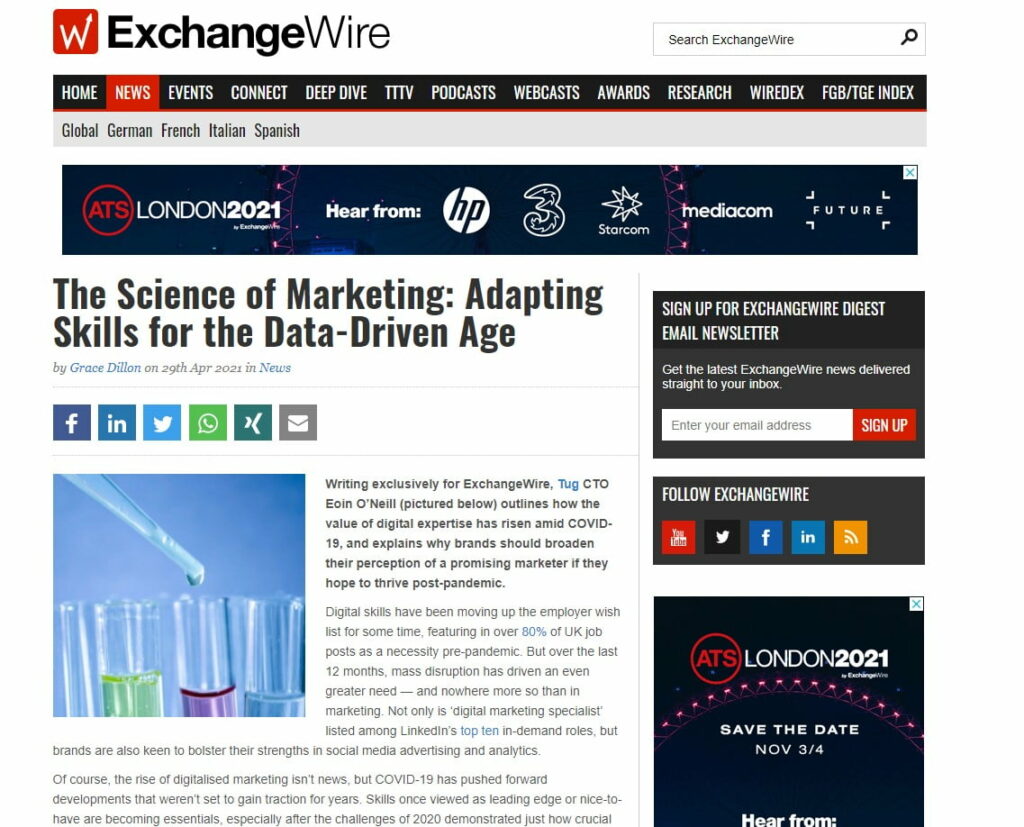
The Science of Marketing: Adapting Skills for the Data-Driven Age
Writing exclusively for ExchangeWire, Tug CTO Eoin O’Neill (pictured below) outlines how the value of digital expertise has risen amid COVID-19, and explains why brands should broaden their perception of a promising marketer if they hope to thrive post-pandemic.
Digital skills have been moving up the employer wish list for some time, featuring in over 80% of UK job posts as a necessity pre-pandemic. But over the last 12 months, mass disruption has driven an even greater need — and nowhere more so than in marketing. Not only is ‘digital marketing specialist’ listed among LinkedIn’s top ten in-demand roles, but brands are also keen to bolster their strengths in social media advertising and analytics.
Of course, the rise of digitalised marketing isn’t news, but COVID-19 has pushed forward developments that weren’t set to gain traction for years. Skills once viewed as leading edge or nice-to-have are becoming essentials, especially after the challenges of 2020 demonstrated just how crucial they are: with low computer science proficiency leaving 37% of businesses unable to create specialist campaigns, and a lack of machine learning skills scuppering AI ambitions.
Urgent adaptation is clearly vital. As well as adjusting hiring processes, the industry must start casting its net wider and sourcing talent from different fields, including the often-overlooked realm of science, technology, engineering, and mathematics (STEM).


